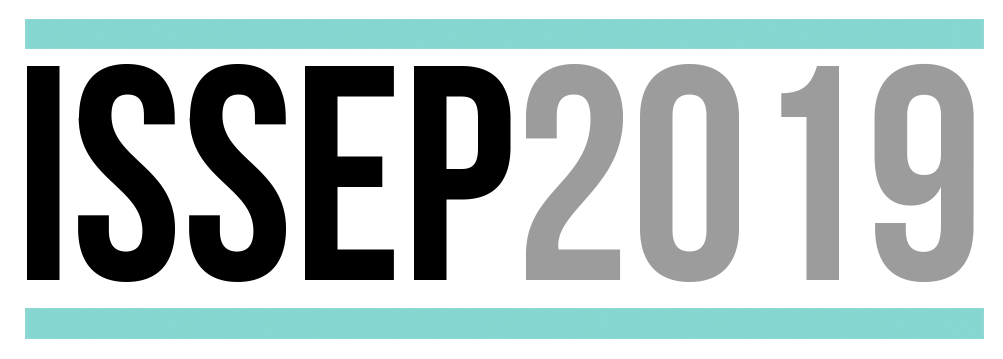| A C C E P T E D C O N T R I B U T I O N S |
Introducing Informatics in Primary Education: Curriculum and Teachers’ Perspectives – Valentina Dagiene, Tatjana Jevsikova and Gabriele Stupuriene
Unplugged Activities in the Context of AI – Annabel Linder, Stefan Seegerer and Ralf Romeike
Cybersecurity Withi the Curricula of Informatics: The Estonian Perspective – Birgy Lorenz, Kaido Kikkas, Tiia Somer and Edmund Laugasson
About Classes and Trees: Introducing Secondary School Students to Aspects of Data Mining – Andreas Grillenberger and Ralf Romeike
Implementing a bidirectional Logo Debugger – Renato Menta, Serena Pedrocchi, Jacqueline Staub and Dominic Weibel
An Exploration of Teachers’ Perspective about the Learning of Iteration-Control Constructs – Emanuele Scapin and Claudio Mirolo
Situated learning with Bebras tasklets – Carlo Bellettini, Violetta Lonati, Mattia Monga, Anna Morpurgo and Martina Palazzolo
Inquiry-based Learning in Computer Science Classroom – Zuzana Tkáčová, Ľubomír Šnajder and Ján Guniš
Observing Abstraction in Young Children Solving Algorithmic Tasks – Josina I. Koning, Hylke Faber, Menno Wierdsma, Henderien Steenbeek and Erik Barendsen
Introduction to Computational Thinking for university students – Zsuzsa Pluhár and Hajnalka Torma
Wandering micro:bits in the public education of Hungary – Andor Abonyi-Tóth and Zsuzsa Pluhár
What Are Computer Science Educators In-terested In? The Case of SIGCSE Conferences – Noa Ragonis and Orit Hazzan
Enhancing Student Engagement in Multidisciplinary Groups in Higher Education – Michael Opoku Agyeman
Person-Thing-Orientation and the Choice of Computer Science Courses in High School – Michael Brinkmeier and Jascha Kemper
CITY: A Game to Raise Girls’ Awareness of Computing – Evelyn Saxegaard and Monica Divitini
Computer Science Problem Solving in the Escape Game “XXXXX” – Alexander Hacke
The Genesis of a Bebras Task – Christian Datzko
Machine Learning Unplugged – Development and Evaluation of a Workshop about Machine Learning – Elisaweta Ossovski and Michael Brinkmeier
Holistic STEAM education: A perspective on training future teachers – Arnold Pears, Erik Barendsen, Valentina Dagienė, Vladimiras Dolgopolovas and Eglė Jasutė
Informatics Education in School: A Multi-Year Large-Scale Study on Female Participation and Teachers’ Beliefs – Enrico Nardelli and Isabella Corradini
From Bebras tasks to lesson plans – Graph data structures – Lucia Budinská and Karolina Mayerova
How beginner-friendly is a programming language? A short analysis based on Java and Python examples – Jean-Philippe Pellet, Amaury Dame and Gabriel Parriaux
Networked Embedded Systems in the Physical Computing Project “Smart City” – Mareen Przybylla, Andreas Grillenberger and Andreas Schwill
Comparing Approaches for Learning Abstraction and Automation by Object Orientation – Arno Pasternak and Johannes Fischer
Accessibility of the Computer Science study for students with visual impairment – Mária Stankovičová
Two programming languages friendly to lower secondary blind students – Ľudmila Jašková, Natália Kováčová and Mária Karasová
Understanding Artificial Intelligence – A Project for the Development of Comprehensive Teaching Material – Michael Schlichtig, Simone Opel, Carsten Schulte and Lea Budde
Music Computer Technologies in IT Training for Students with Deep Visual Impairment – Irina Gorbunova, Anastasia Govorova and Alex Voronov
Teachers’ Perspectives on Artificial Intelligence – Annabel Lindner and Ralf Romeike
International Comparative Study on Computational Thinking Education in k-12 – Yang Xing and Jin-Bao Zhang
Facts, Figures, Remarks and Conclusions about the Austrian Beaver Contest with Regard to Computational Thinking and Computer Science Domains – Peter Micheuz, Stefan Pasterk and Andreas Bollin
Categorization of theoretical tasks in the middle school competition PRASK – Michal Anderle
Designing an IT Escape Game to Foster the Learning of Computer Science – Sébastien Combéfis and Guillaume de Moffarts
Design and Implementation of a New Model of Python Programming in Secondary Schools – Ján Guniš, Ľubomír Šnajder, Zuzana Tkáčová and Valentína Gunišová
Design for Curriculum on Programming Education in Primary Schools of Japan from 2020 – Takeharu Ishizuka, Daisuke Hironaka and Tatsuya Horita
A Survey of Simulators and Emulators Suitable for Teaching Computer Architectures at Postgraduate Levels – Michael Opoku Agyeman
Integrated digital education – Computational thinking for everyone – Corinna Kröhn and Barbara Sabitzer
The New Informatics Curriculum in EstonianHigh Schools – Mart Laanpere, Eno Tõnisson and Birgy Lorenz
Music Computer Technologies and Musical Informatics Training Course for Students – Irina Gorbunova, Andreas Kameris and Elena Bazhukova
PrivaCity: A Chatbot Game to Raise Privacy Awareness among Teenagers – Erlend Bergen, Torjus H. Saethre and Monica Divitini
